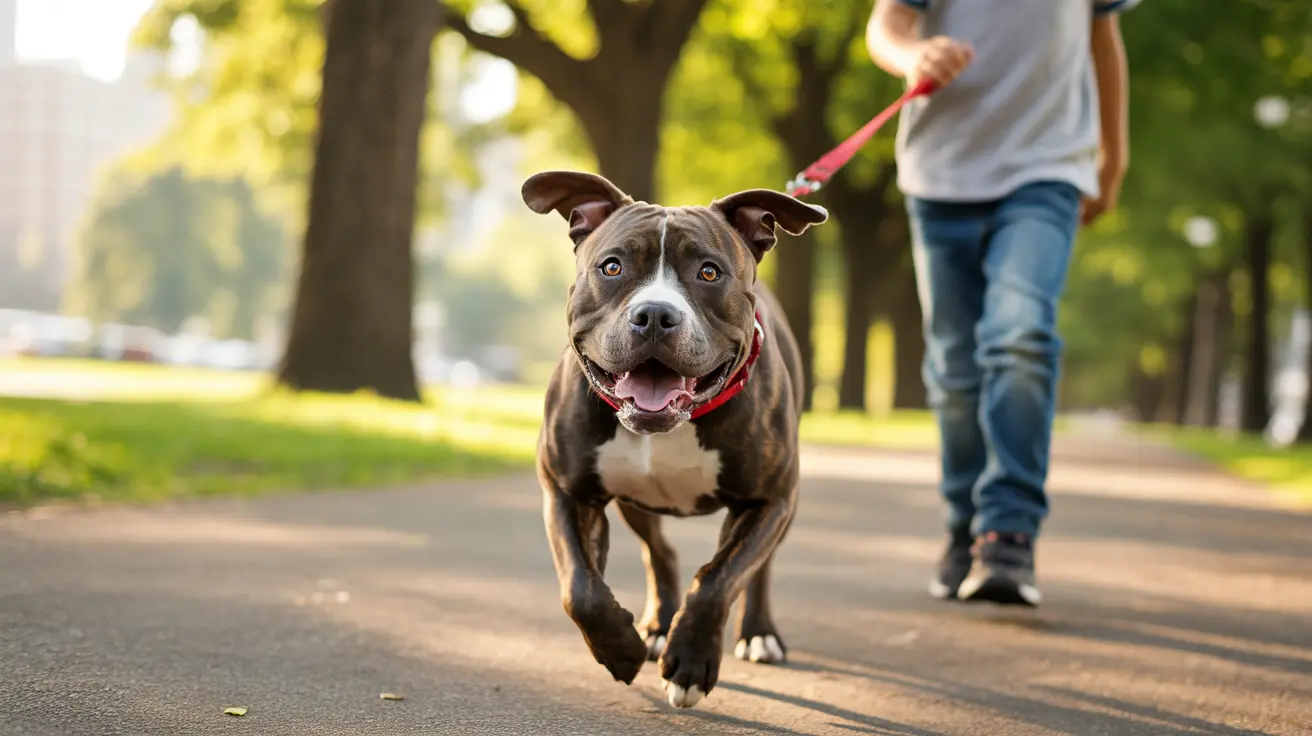If you're a pitbull owner or considering bringing one into your family, understanding their lifespan is crucial for providing the best possible care. Pitbulls, which include several related breeds, generally live between 8 and 16 years, with most enjoying a lifespan of 10-14 years. Let's explore what determines how long pitbulls live and how you can help your furry friend reach their full life potential.
Understanding Pitbull Breeds and Their Life Expectancy
Different pitbull breeds have varying life expectancies:
- American Pit Bull Terrier: 8-15 years
- American Staffordshire Terrier: 12-16 years
- Staffordshire Bull Terrier: 12-14 years
- American Bully: 8-15 years
Smaller pitbull varieties typically enjoy longer lifespans than their larger counterparts, following a general trend in canine longevity where smaller dogs often live longer than larger breeds.
Key Factors Affecting Your Pitbull's Lifespan
Genetics and Breeding
Genetic factors play a crucial role in determining how long pitbulls live. Responsible breeding practices can significantly impact longevity by reducing the risk of inherited health conditions. Mixed-breed pitbulls often enjoy longer lifespans due to greater genetic diversity.
Diet and Nutrition
A balanced, high-quality diet tailored to your pitbull's age and activity level is essential for longevity. Many pitbulls have specific dietary needs or sensitivities that require careful attention to their food choices. Obesity can significantly reduce lifespan, making portion control crucial.
Exercise and Mental Stimulation
Regular physical activity and mental enrichment are vital for maintaining your pitbull's health and extending their lifespan. These energetic dogs need daily exercise to maintain healthy weight, muscle tone, and cardiovascular health.
Common Health Issues That Impact Lifespan
Heart Conditions
Pitbulls can be prone to various heart issues, including aortic stenosis and valve problems. Regular veterinary checkups can help detect and manage these conditions early.
Joint and Bone Health
Hip dysplasia and arthritis are common in pitbulls, particularly as they age. Maintaining a healthy weight and providing appropriate exercise can help minimize these issues.
Skin Conditions and Allergies
Many pitbulls experience skin allergies and are susceptible to certain types of skin cancer. Regular grooming and veterinary care can help manage these conditions effectively.
Maximizing Your Pitbull's Lifespan
Preventive Healthcare
Regular veterinary check-ups, vaccinations, and preventive treatments for parasites are essential. Early detection and treatment of health issues can significantly extend your pitbull's life.
Environmental Factors
A stable, stress-free environment with plenty of love and attention contributes to longevity. Reducing exposure to environmental toxins and maintaining a safe living space is crucial.
Frequently Asked Questions
How long do pitbulls typically live and what factors influence their lifespan?
Pitbulls typically live 10-14 years, with factors such as genetics, diet, exercise, and healthcare playing crucial roles. Some pitbulls can live into their mid-teens with excellent care.
What are common health problems that can affect a pitbull's longevity?
Common health issues include heart conditions, hip dysplasia, skin allergies, and certain cancers. Regular veterinary care and early intervention can help manage these conditions.
How does responsible breeding impact the life expectancy of pitbulls?
Responsible breeding practices reduce the risk of genetic health issues and can lead to longer lifespans. Mixed-breed pitbulls often live longer due to increased genetic diversity.
Can diet and exercise really help my pitbull live longer? How should I approach them?
Yes, proper diet and exercise are crucial for longevity. Feed high-quality food appropriate for your dog's age and activity level, and provide daily exercise through walks, play, and training sessions.
Does spaying or neutering my pitbull affect how long they will live?
Yes, spaying or neutering can increase lifespan by reducing the risk of certain cancers and preventing reproductive-related health issues. It's best to discuss timing with your veterinarian.
Conclusion
While pitbulls typically live between 8 and 16 years, their actual lifespan depends largely on the care they receive. By providing proper nutrition, regular exercise, preventive healthcare, and lots of love, you can help your pitbull live a longer, healthier life. Remember that each dog is unique, and working closely with your veterinarian to address your pet's specific needs is key to maximizing their lifespan.






